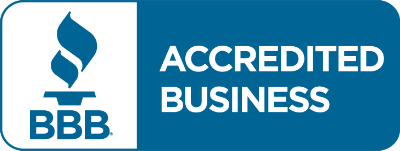Benefits of In Home Detox
There is a good reason for the increasing interest in a supervised medical detox at home. Consider these benefits:
- Personalized care. Your private nurse is assigned to be at your side as you progress through the stages of detox. With this level of personalized attention, you will be well cared for.
- Privacy. Patient privacy and confidentiality is protected with an in home detox. This allows you to relax in the knowledge that you receive the care you need with complete discretion.
- Physician oversight. A Board Certified Addiction Specialist physician oversees the in home detox program, ensuring that your medical needs are met. They can provide medications to reduce cravings and the discomfort associated with withdrawal.
- Less stress. Going through detox in the familiar home setting is less stressful than being at a detox facility. Patients prefer being in their own bed and surrounded by their personal belongings.
- Support of family. Being at home for detox allows you to have your spouse or family members, even your pets, close by. These loved ones are there to cheer you on and encourage your progress in recovery.
- Convenience. It is convenient to have the detox team come to your home versus packing and then driving to a detox center.
How to Prepare for Detox At Home
Prior to starting the in-home detox process, you will want to prepare. Here are some tips for assuring the home detox goes smoothly.
- Consult with a physician. Before starting recovery, it is helpful to first meet with a doctor for a physical exam and blood work. This allows the doctor to assess the severity of the substance use disorder and to advise you which level of care is best. If you are a candidate for an at-home detox, move to the next tip.
- Meet with my employer. The detox process may take a week or longer, so you should plan to request some time off from work. The length of the absence depends on the level of care you select for addiction treatment after detox.
- Prepare your home. If you are entering recovery, you will want to remove any substances from the home that might be misused. Consult with the in home detox team for a list of items to remove. By taking all intoxicants out of the house it reduces the risk of relapse.
- Hydrate. Be sure to have plenty of bottled water on hand and electrolyte boosters like Gatorade. Staying hydrated throughout the detox will help ease the withdrawal symptoms.
What to Expect During In Home Detox
During detox, the toxins associated with the substance are gradually released from the body. As the detox proceeds, withdrawal symptoms begin to surface. The symptoms vary in intensity based on the specific substance involved, and the duration and severity of the dependency or addiction.
The medically monitored in-home detox provides the oversight and medical support needed to manage the withdrawal symptoms. The private detox nurse and concierge care team keep a close eye on your vital signs while providing medical interventions to minimize discomfort.
The specific withdrawal symptoms are dictated by which substance is involved. Alcohol withdrawal symptoms will differ from cocaine withdrawal symptoms, for example. However, for most substances the withdrawal process follows a fairly common detox timeline:
- Stage One. On the first day of detox, you experience emerging symptoms. These might include symptoms such as sweating, nausea, shaking, irritability, and insomnia.
- Stage Two. The second stage of detox is when symptoms are at their peak of intensity. This stage may take two to four days, and often includes psychological symptoms in addition to physical discomfort.
- Stage Three. During the final phase of detox, most of the symptoms begin to gradually subside. There may be lingering symptoms, such as depression, insomnia, or anxiety.
What to Look for in At Home Detox Services
When seeking an in-home detox provider, there are some essential features to look for. These include:
- The in-home detox nurses, physicians, and psychiatrists should be fully licensed
- They should have a board certified physician to guide the detox process
- Nurses should be trained and experienced in monitoring drug and alcohol detox
- The nursing service should create a customized detox plan that reflects your unique substance situation and addiction history
- The in-home detox should have psychiatric services available for patients with a co-occurring mental health disorder
- The service should provide case management and guidance for the next steps in recovery following detox



